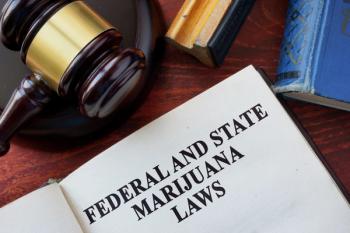
OTC CBD Products Currently Available in Pharmacies
Results of a study presented in a poster presentation during ASHP Midyear collected data of the available OTC CBD products being sold in Colorado pharmacies.
With recent surges in popularity, FDA guidance, and state legislation within the landscape of cannabis-derived compounds, pharmacies are increasingly supplying cannabidiol (CBD) products.
Of note, CBD is only 1 of the compounds found within the cannabis plant and has no psychoactive effects; delta-9-tetrahydrocannabidiol (THC) is a different compound that does produce psychoactive effects, and marijuana is a type of cannabis plant that possesses multiple naturally occurring compounds, including CBD and THC.1
Study investigators Leticia Shea, PharmD, BCACP, Anna Carnazzo, PharmD candidate, and Janelle Matura, PharmD candidate, from the Rueckert-Hartman College for Health Professions at Regis University in Denver, Colorado, documented the OTC products currently being offered by pharmacies across Colorado. The findings were presented in a poster during the Association of Health-System Pharmacists (ASHP) 2020 Midyear Clinical Meeting and Exhibition.
Related:
Although there are myriad CBD products marketed and sold with medical claims, there is currently only 1 CBD product that has been evaluated and approved by the FDA for safety and efficacy.1
As the CBD sphere of influence expands, pharmacists should “recognize the discrepancy between these CBD products and CBD approved by the FDA,” the researchers wrote. Importantly, pharmacists should also be prepared to effectively counsel patients on the use of untested CBD products that are available in their stores.2
Of the 35 pharmacies included in the study, 18 (51%) sold at least 1 CBD product. Investigators took inventory of the CBD products at the 18 chain and independent pharmacies across the state of Colorado, located in both urban and rural regions. A total of 60 CBD products were recorded.
The majority of products took the form of oral drops/pumps, balms/salves, or creams/ointments. Other CBD product forms included topical oils, bath products, gummies, lotions, patches, and pet salves and balms.
Depending on the product form – oral, topicals, or transdermal – concentrations of compounds varied. In oral products, CBD concentrations varied from 10 to 60 mg/mL, with 13 (87%) labeled as “full spectrum” and therefore likely contained active cannabinoids other than CBD. In topical products, concentration ranged from 30 mg CBD/15 mL to 1000 mg CBD. Most topical products also contained other ingredients; among these products, 32% contained menthol, 17% contained camphor, 10% willow bark extract, and 10% contained peppermint, among other ingredients. The single transdermal product offered a 20mg CBD/24h dose, according to researchers.
Researchers reported that additional studies are needed to determine the safety and efficacy of these products in regard to the formulations themselves, as well as dosing.
“The impact of drug-interactions for topically applied CBD is currently unknown as no studies have evaluated [only CBD] topical formulations in humans,” investigators wrote. “The OTC CBD market is growing, and will be important for pharmacists to be cognizant of the variety of products being sold.”
References
- What You Need to Know (And What We’re Working to Find Out) About Products Containing Cannabis or Cannabis-derived Compounds, Including CBD. FDA. Last updated March 5, 2020. Accessed January 25, 2021.
https://www.fda.gov/consumers/consumer-updates/what-you-need-know-and-what-were-working-find-out-about-products-containing-cannabis-or-cannabis - Carnazzo A, Matura J, Shea L. Cannabidiol (CBD) products found over-the-counter in Colorado. Presented at: American Society of Health-System Pharmacists Midyear Clinical Meeting and Exhibition. December 6-10, 2020; virtual.
Newsletter
Pharmacy practice is always changing. Stay ahead of the curve with the Drug Topics newsletter and get the latest drug information, industry trends, and patient care tips.























